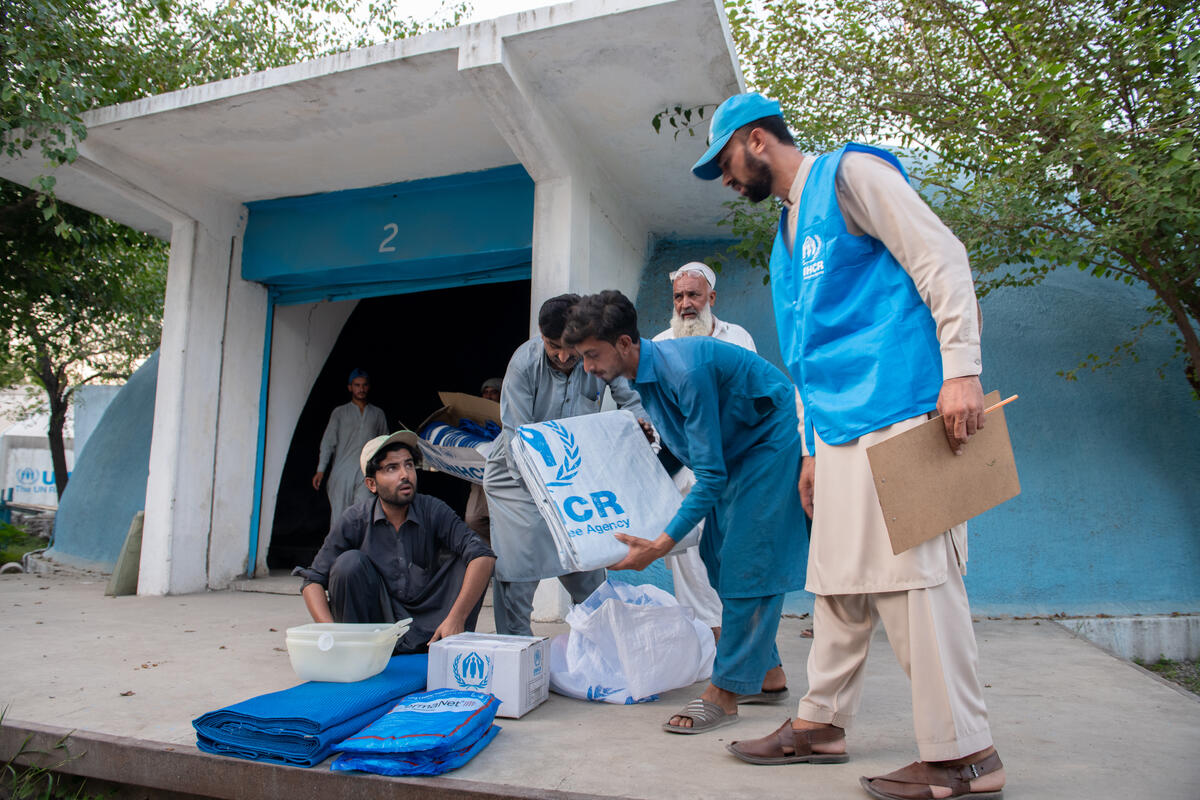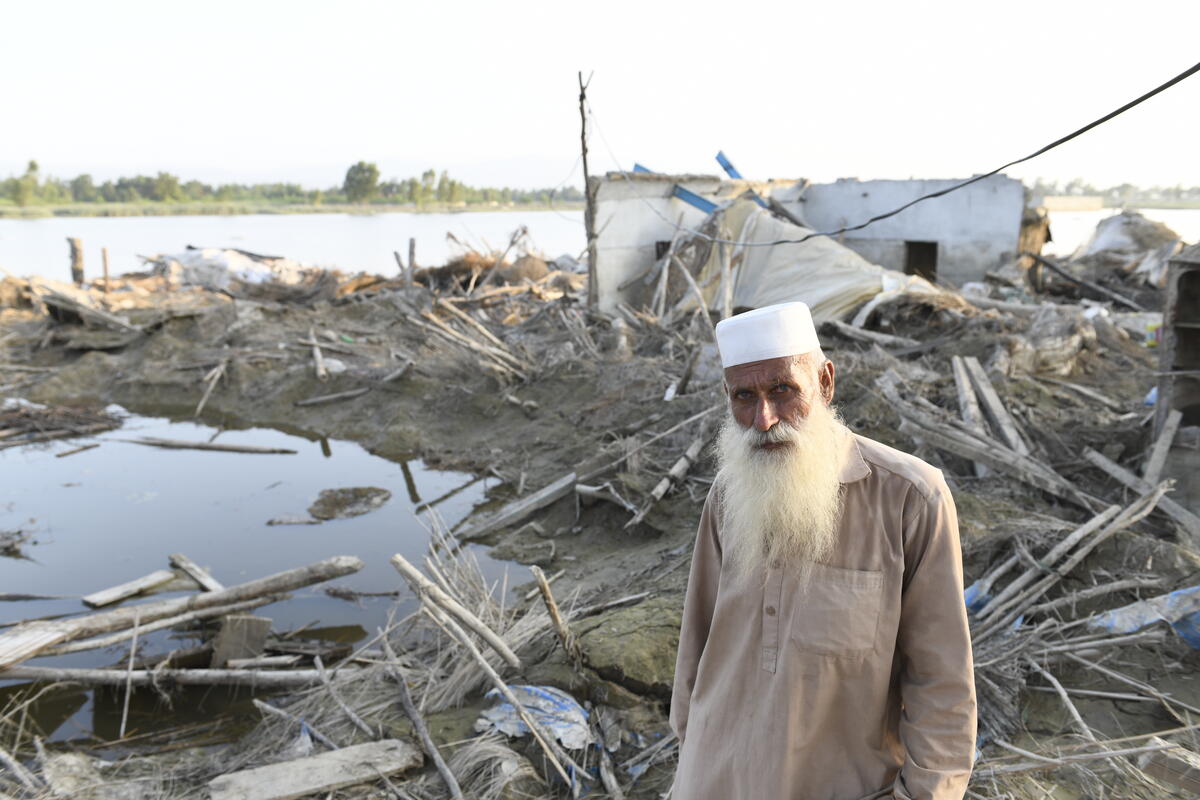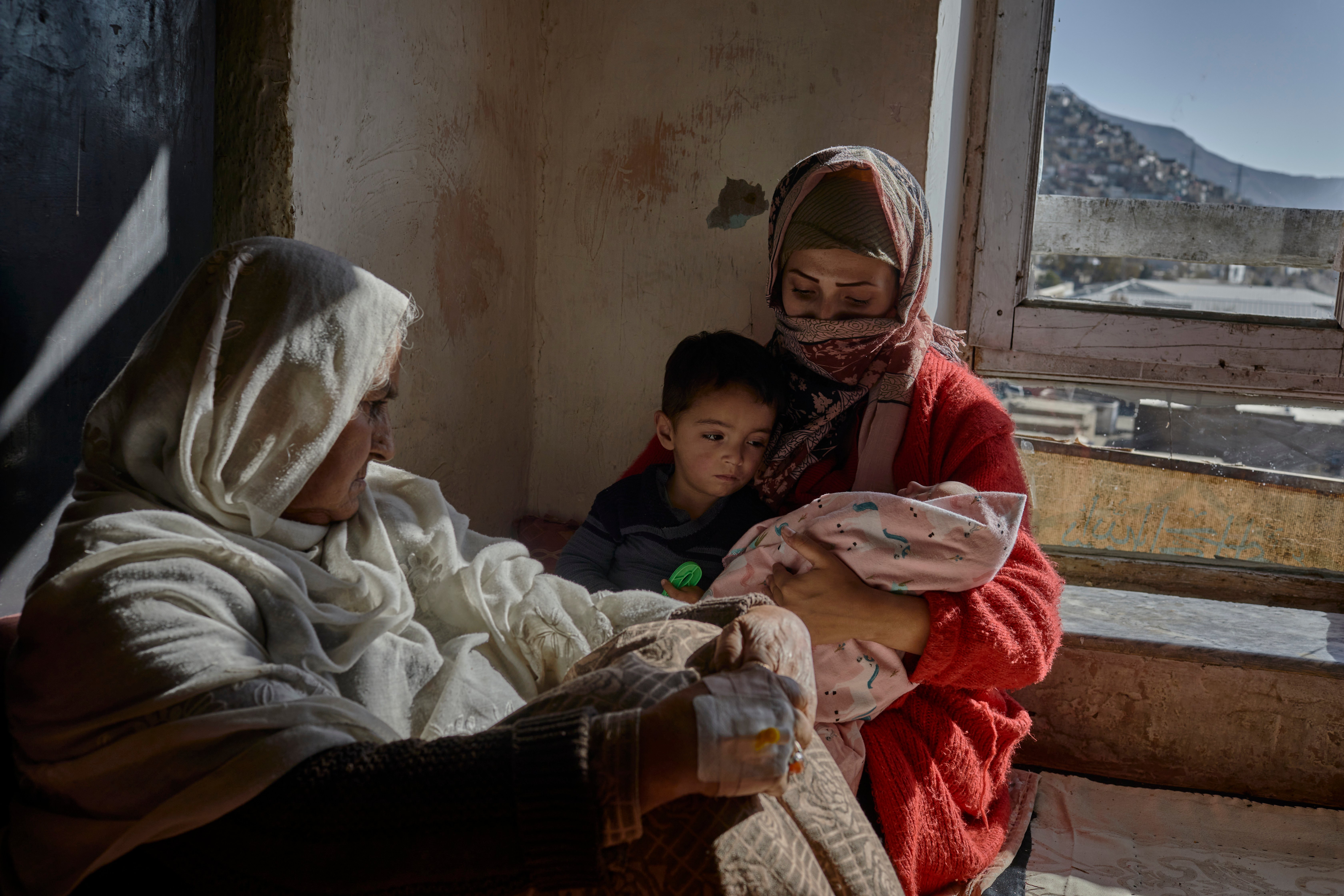Afghans embark on journey "from one home to another"
Afghans embark on journey "from one home to another"

GUJRANWALA, Pakistan, July 29 (UNHCR) - "I have never seen Kabul and have no idea how it will look. But my mother assured me that we are going from one home to another," said 19-year-old Aalia Bibi as she boarded the truck taking her back to Afghanistan and ending 25 years of exile for her family.
Aalia was among 150 Afghans leaving Gujranwala city in eastern Punjab, Pakistan, last week under the UNHCR voluntary repatriation programme. The convoy of 13 trucks was the first-ever from Gujranwala organised by UNHCR's mobile teams processing repatriation requests. The earlier movements were carried out from the provincial capital, Lahore.
A census taken earlier this year showed that some 208,000 Afghans were living in Punjab province, out of the over 3 million Afghans in the whole of Pakistan.
Aalia's family took refuge in Pakistan after the Soviet invasion of Afghanistan in 1980. Born in a refugee camp along the Pakistan-Afghanistan border, she was the eldest child among her five sisters and two brothers. Her family moved to Sialkot in Punjab province in the mid-80s to look for better work opportunities.
"We lost our father in a road accident and after that our mother had to work day and night in homes to earn a living for us. I also worked in the football-making factory in Sialkot," said Aalia in fluent Punjab, the local language of Punjab province. (Like her, thousands of Afghans born and bred in Pakistan speak Urdu and other local languages.)
Despite the hard life in exile, Aalia had understandably mixed feelings about leaving the only home she knew. "Please excuse me for being unable to control my tears," she said, her face half-covered in a black veil, apologizing to her Pakistani friends who had come to say goodbye.
It was an emotional scene as friends, neighbours, UNHCR and Pakistani authorities gathered in a farewell ceremony in Gujranwala.
"I stand today in front of my Afghan brothers and sisters to share this moment of joy that finally I am returning home with dignity and respect," said Innayat Ullah, an Afghan elder also repatriating to Kabul.
"In all these years of exile, I have realized one thing that I want to share with my countrymen here: no one can rebuild and reconstruct Afghanistan except Afghans themselves. So I have decided my fate and I am going to be among others who returned to do the same," he added.
"As much as for you, today is a very joyful day for us," said UNHCR's Representative in Pakistan, Guenet Guebre Christos. "As people serving refugees, there is nothing more honourable, dignified and joyful as witnessing a return to one's homeland. You are resilient, highly-motivated people and today you have again demonstrated your motivation and resilience to go home, pick up and start all over again."

Shafqat Ali Hijazi, Pakistan's Commissioner for the Afghan Refugees Department, told the repatriating Afghans, "Since the arrival of Afghan refugees in Pakistan, the government, with the help of UNHCR, has been trying its best to keep the Afghan refugees comfortable and to make you feel at home in Pakistan. As most of you repatriating today have lived in Pakistan for the last 16 to 17 years, the people and the government wish you a peaceful repatriation to Afghanistan."
More than 2.5 million Afghan refugees have gone home from Pakistan since the start of UNHCR's voluntary repatriation programme in 2002, making this the largest repatriation ever conducted by the refugee agency. Over 214,000 Afghans have gone home from Pakistan so far this year, and UNHCR expects a total of 400,000 to repatriate in 2005.
By Babar Baloch
UNHCR Pakistan









